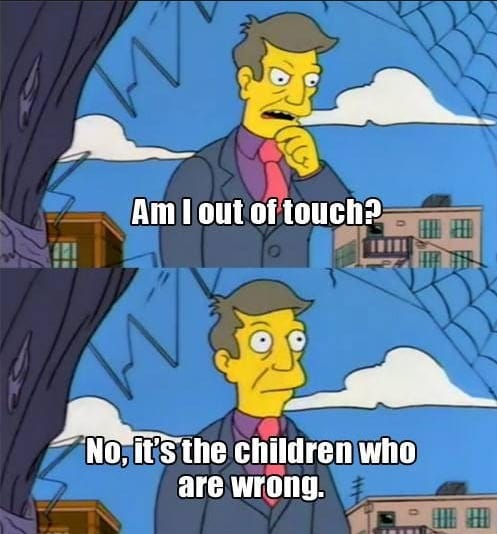🧃 Coca-Cola & The Future of AI Creativity?
No. Also: free stuff
I’ve been back in the classroom this week for the start of a new academic year. My first time teaching an undergraduate class, as it happens.
It was all going fine until I found out the following:
Young people don’t know Busted. You remember Busted, right?
Phew.
It’s pretty obvious how I came to such a bone-chilling epiphany, but I’ll tell you anyway.
See, Coca-Cola is set to release a Year 3000 drink. We talked about it in class - is this a headline-grabbing gimmick? Is Coca-Cola just trying to show how “innovative” it is? Or could this sort of nonsense dilute their real brand identity?
Most importantly, we discussed Busted. They literally went to the year 3000 and they made precious little mention of this questionable thirst-quencher.
To my acute shock, not a single student had even heard of one of the top 10 pop-punk novelty acts of the early 00’s. But that’s what they go to school for - and I made sure to teach them.
So, the Coca-Cola thing.
They say:
”Coca‑Cola® Y3000 Zero Sugar was co-created with human and artificial intelligence by understanding how fans envision the future through emotions, aspirations, colors, flavors and more. Fans’ perspectives from around the world, combined with insights gathered from artificial intelligence, helped inspire Coca‑Cola to create the unique taste of Y3000.“
We say:
Yeah, whatever.
I mean, they were drinking mead in the year 1000. If Big Mead had consulted the local crystal ball to see what we’d all be doing in the year 2000, I doubt they’d have predicted the rise of blue alcopops. But that’s what I was drinking in the year 2000. Take that, Nostradamus.
That’s not my only quibble with this hogwash, though. They also won’t tell us what the drink tastes like. I guess in the future, they have extra sensory abilities that they simply couldn’t communicate to us in terms of our paltry “salty/sweet/sour/bitter/umami” taste receptors. Or, since the world will be burnt to a crisp, it tastes of ash. Like today’s Coca-Cola.
I’ve been to the year 3000. Not much has changed; they still drink fizzy water.
Nonetheless, we will do as hi, tech. does, and seek for substance where likely there lies none.
Coca-Cola is doing what a lot of other companies will do in the near future. I don’t need to go to the year 3000 to know that.
! Novela: Write Your Story - Today !
If you’re wondering why hi, tech. is so infrequent these days, sign up to my new product below and you’ll soon see where all my time has gone 👇👇👇
Businesses will try to use AI so they don’t have to come up with their own ideas. It’s the new version of hiring McKinsey so that when the ideas inevitably fail, it’s not really your fault. Gah, bloody McKinsey again! If only there was another way…
The whole venture makes no sense, other than to show that they are “innovative”. In the sense that they’re using the same tech we all have access to, instead of focusing on generating good ideas - however they arrive.
How creative is AI?
This week, a new research study found that AI can pass a strict human test for “creative idea generation”.
Here’s what the scientists did:
“Researchers started by asking three AI chatbots—OpenAI’s ChatGPT and GPT-4 as well as Copy.Ai, which is built on GPT-3—to come up with as many uses for a rope, a box, a pencil, and a candle as possible within just 30 seconds.
Their prompts instructed the large language models to come up with original and creative uses for each of the items, explaining that the quality of the ideas was more important than the quantity. Each chatbot was tested 11 times for each of the four objects. The researchers also gave 256 human participants the same instructions.”
The responses were rated by AI and humans, with the aim of deciding how “creative” but also “realistic” the responses were.
The AI performed well against the criteria. In fact, it performed better than plenty of the humans.
But here’s the kicker: the AI could not perform as well as the most skilled humans.
Columbia Business School conducted another experiment. They paired people with AI on teams in the Super Mario Dine and Dash game. Naturally, they could increase or decrease the skill level of the AI “players”, but this was not the deciding factor in how well the teams performed. The most important element was the skill level of the human player.
In fact, they found that all teams performed worse when AI was introduced at first. As the researchers noted, “There was a general aversion to the AI among human players”. The negative effect on performance was most pronounced among the less skilled players.
Over time, the most skilled players found ways to work effectively with the AI and there was a minimal negative impact on their scores.
Similar studies found the same phenomenon in content creation, too. More skilled writers and editors can use AI more productively than less skilled employees. In fact, skilled employees produce better work - and more of it - when using AI. Less skilled employees see a detrimental effect on their output.
In a nutshell: the response to AI should not be the lazy replacement of people with unimaginative bots. It should be to increase the skill level of human employees so they can put the technology to optimal use. If a company’s employees can be replaced by AI, it suggests they weren’t trained to a sufficient level in the first place.




